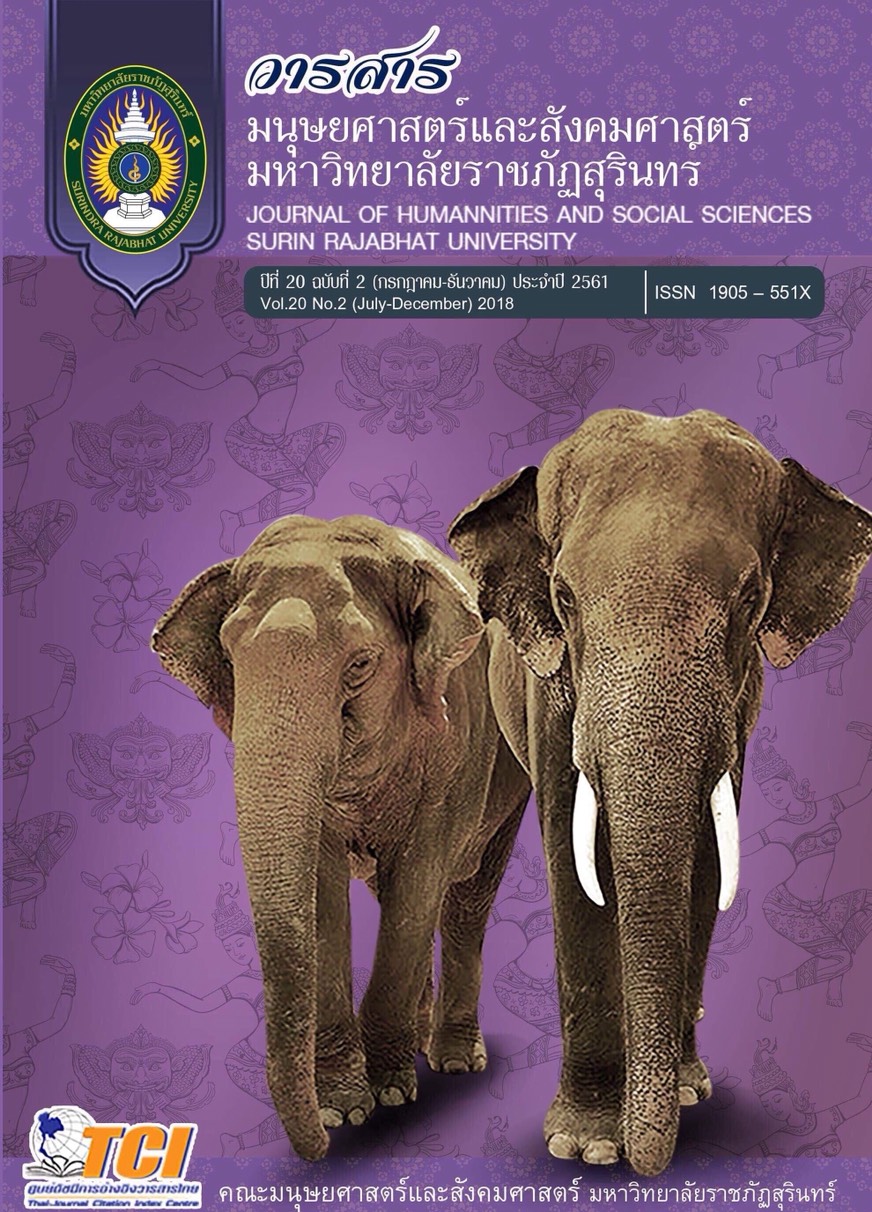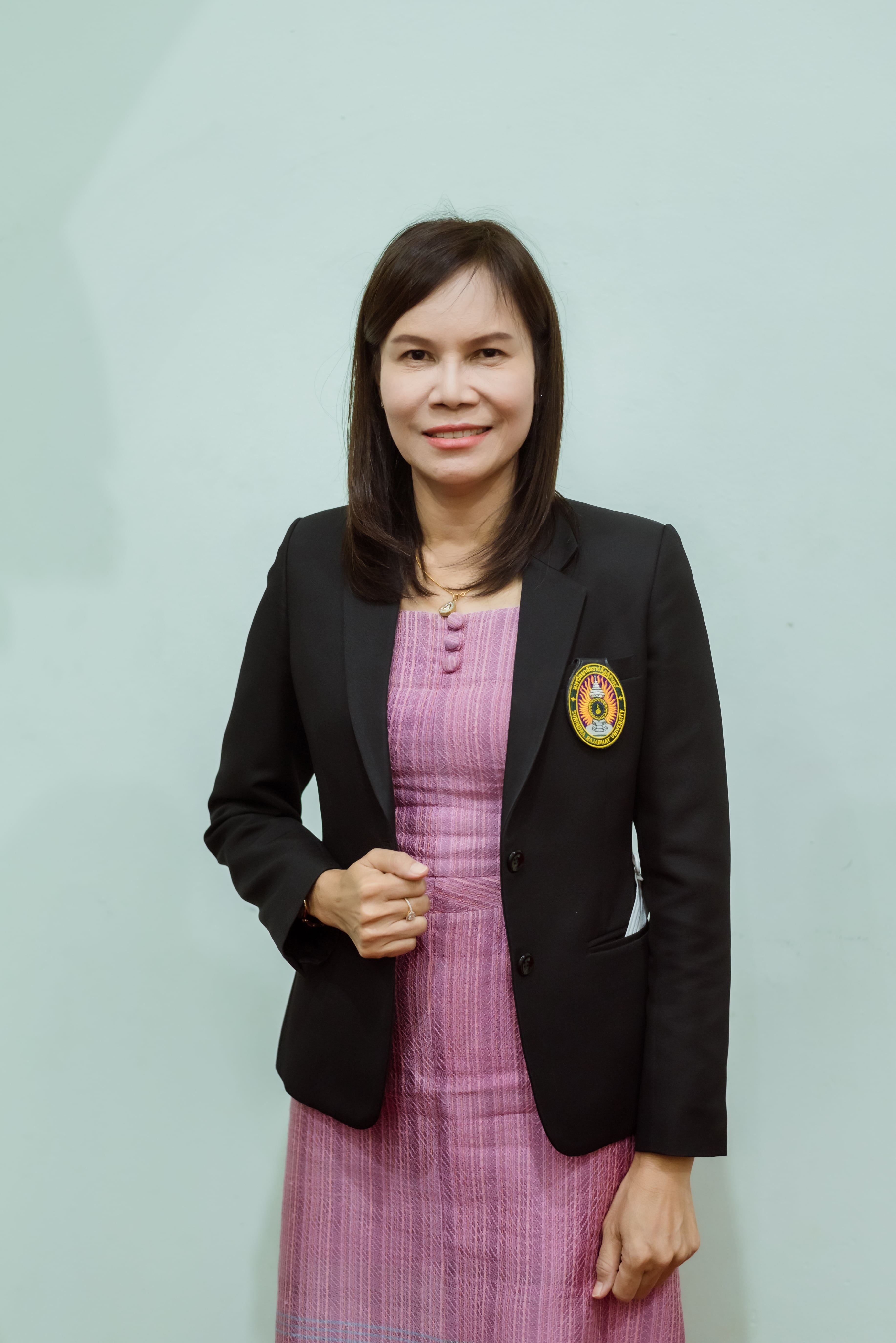ปัจจัยเชิงสาเหตุที่มีอิทธิต่อองค์การแห่งการเรียนรู้ของมหาวิทยาลัยราชภัฏสุรินทร์ The Causal Factors of the Learning Organization of Surindra Rajabhat University
Keywords:
The causal factors, Learning organization, Surindra Rajabhat UniversityAbstract
This research is the mixed methods with its purposes to 1) study the level of causal factors and learning organization of Surindra Rajabhat University, 2) confirmation component of the causal factor model And the learning organization of Surindra Rajabhat University, 3) examine the linear structure of the causal factor model. And the learning organization of Surindra Rajabhat University was consistent with empirical data and 4) forearm policy proposals for developing learning organizations of Surindra Rajabhat University. The samples were 400 selected by the Stratified Random Sampling and 9 for Focus group by purposive sampling. Data was collected by a questionnaire with a reliability of 0.966 during the period January-March 2018. The data was analyzed using technical analysis, structural equation model. The research findings were as follows:
- The findings in causal factors and learning organization of Surindra Rajabhat University were as follows; 1.1 It was found in the External factors, as a whole, its applicability was at the high level. But when considering in each particular factor, it was found that the applicability was at the high level in four dimensions; Socio-Cultural, Technological, Economic and Political and Legal. 1.2 It was found in the Internal factors, as a whole, its applicability was at the high level. But when considering in each particular factor, it was found that the applicability was at the high level in four dimensions; Organizational Structurel, Individuals & Teams Development, Leadership, Organization Culture and medium level was Vision, Mission & Strategy 1.3 It was found in the Learning organization as a whole its applicability was at the medium level. But when considering in each particular factor, it was found that the applicability was at the hight level in two dimensions; System thinking, Mental Models and medium level in three dimensions; Team Learning, Shared Vision and Personal Mastery
- Result of Confirmatory factor analysis of Learning organization of Surindra Rajabhat University, it was found that the applicability was measurement model of external factors, internal factors and learning organization was consistent with empirical data. It can be used to analyze linear equations.
- The model of the causal factor model. And the learning organization of Surindra Rajabhat University was consistent with empirical data based on a harmonized index of accepted criteria, considering the value of the c2/df = 0.919, CFI = 1.00, GFI = 0.99, AGFI = 0.97, RMSEA = 0.000 และ SRMR = 0.0096. In addition Largest Standardized Residual less than |2.00| as 1.62,
- From group discussion can be Policy proposals for developing learning of Surindra Rajabhat University as follows; 4.1 External factors (EXT) have a policy proposal as follows important; Technological (ext2) Socio-Cultural (ext1) Economic (ext3) and Political and Legal (ext4). This is due to the fact that these factors affect the Internal factors (INT) and Learning Organization (ORG) at a high level, respectively 4.2 Internal factors (EXT) have a policy proposal as follows important; Organization Culture (int5) Leadership (int4) Vision Mission & Strategy (int1) Individuals & Teams Development (int3) Organizational Structural (int2). This is due to the fact that these factors affect the Learning organization (ORG) at a high level, respectively. 4.3 The Learning Organization (ORG) have a policy proposal as follows important; Shared Vision (org4) Personal Mastery (org5) Team Learning (org1) System Thinking (org2) and Mental Models (org3), respectively.












